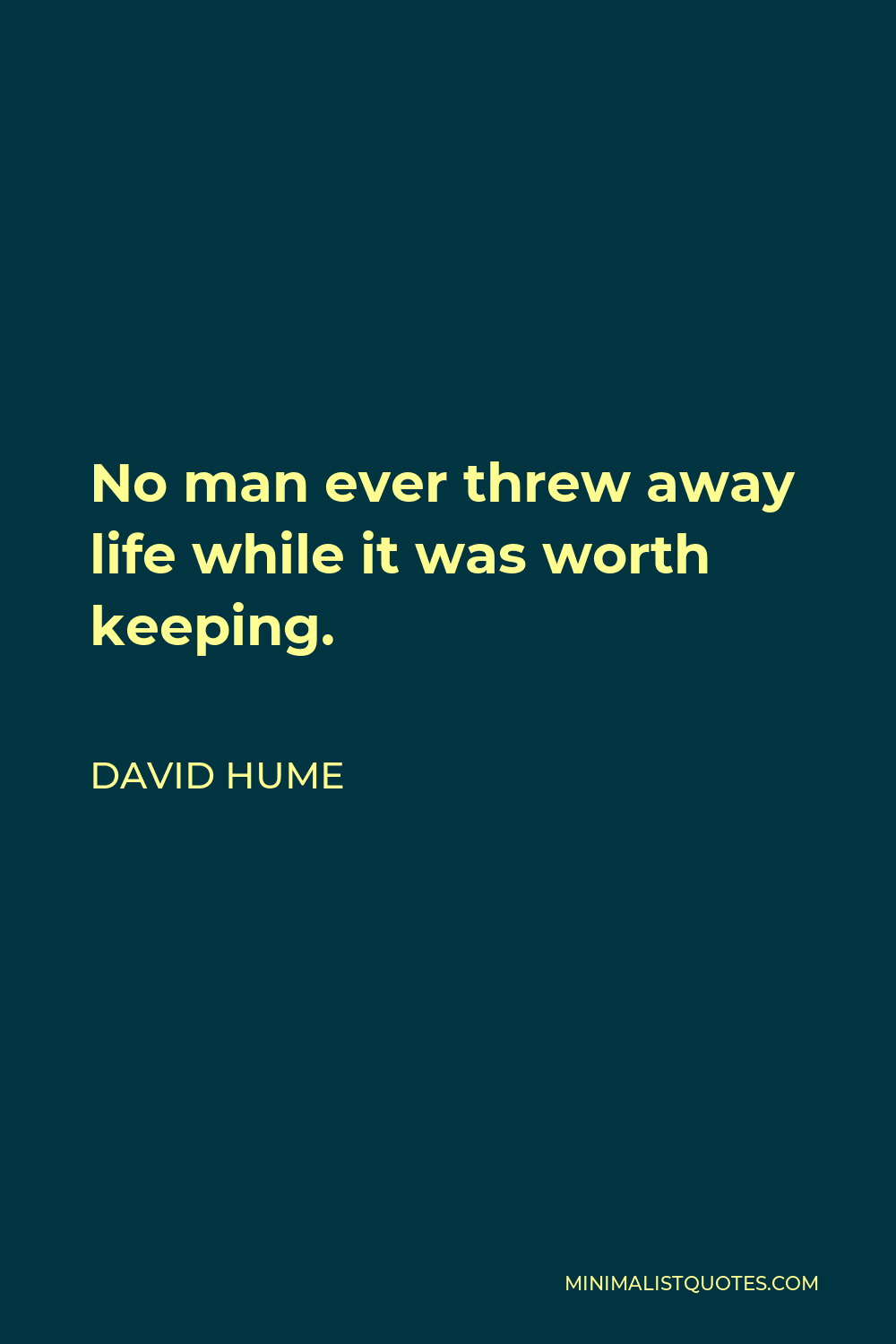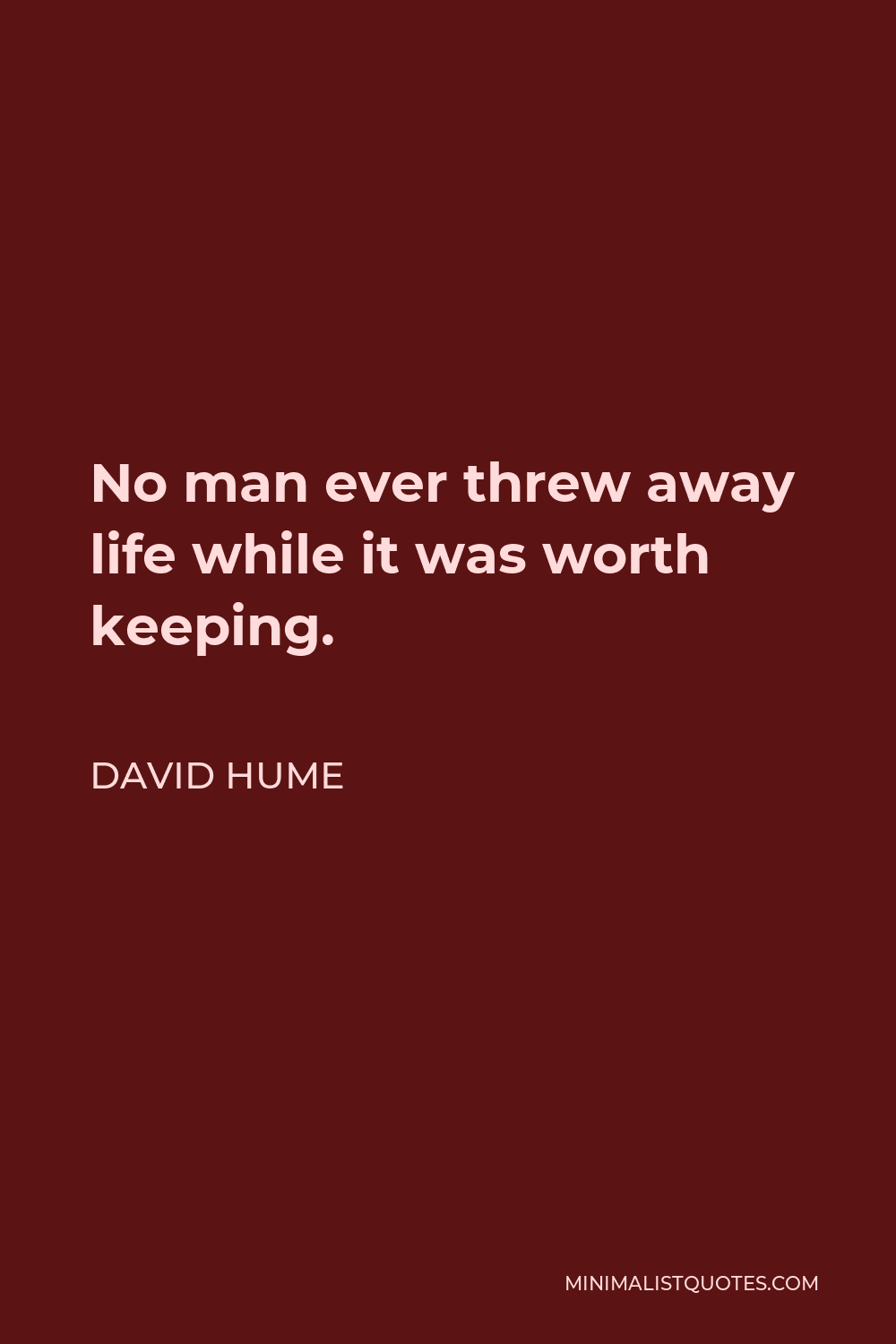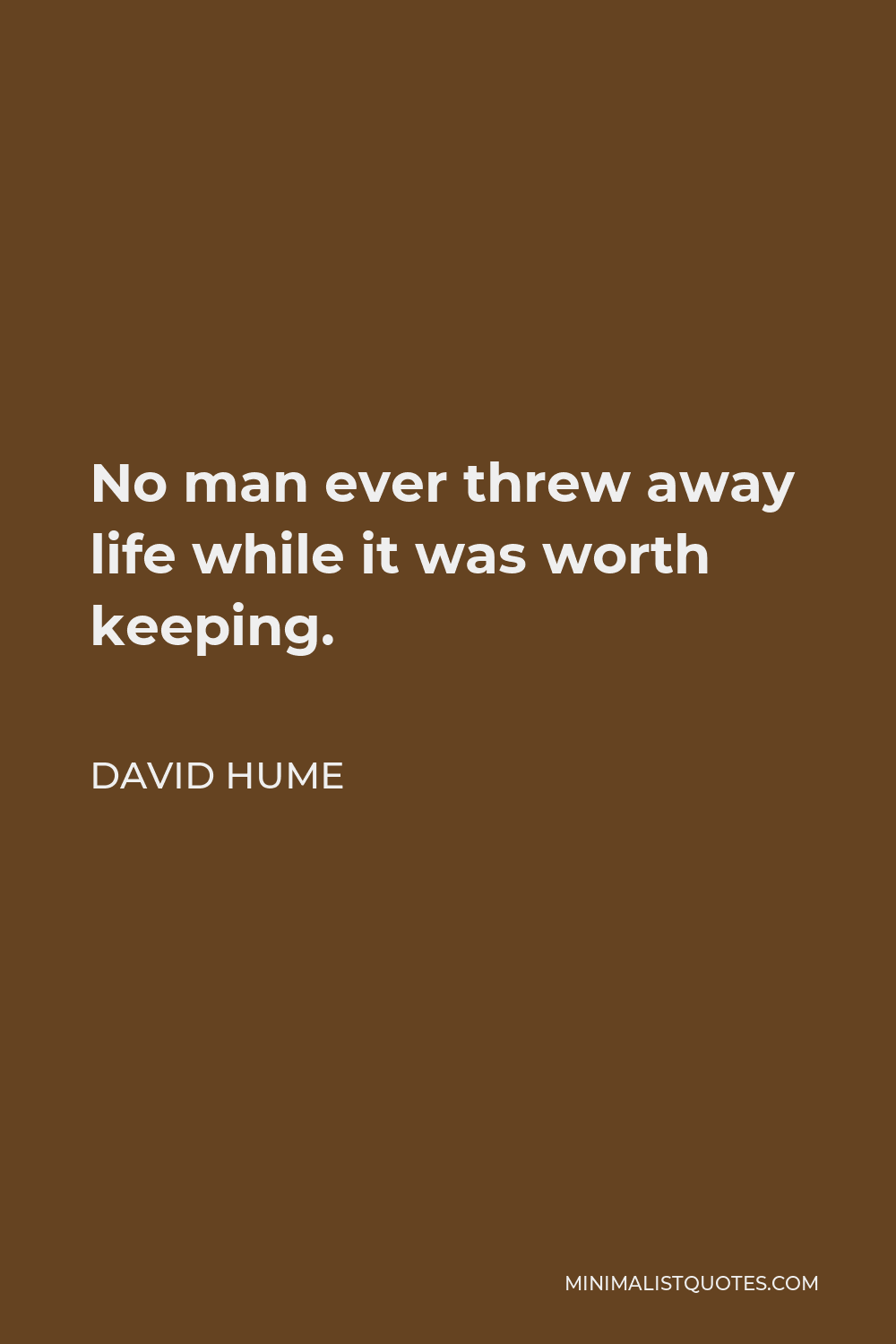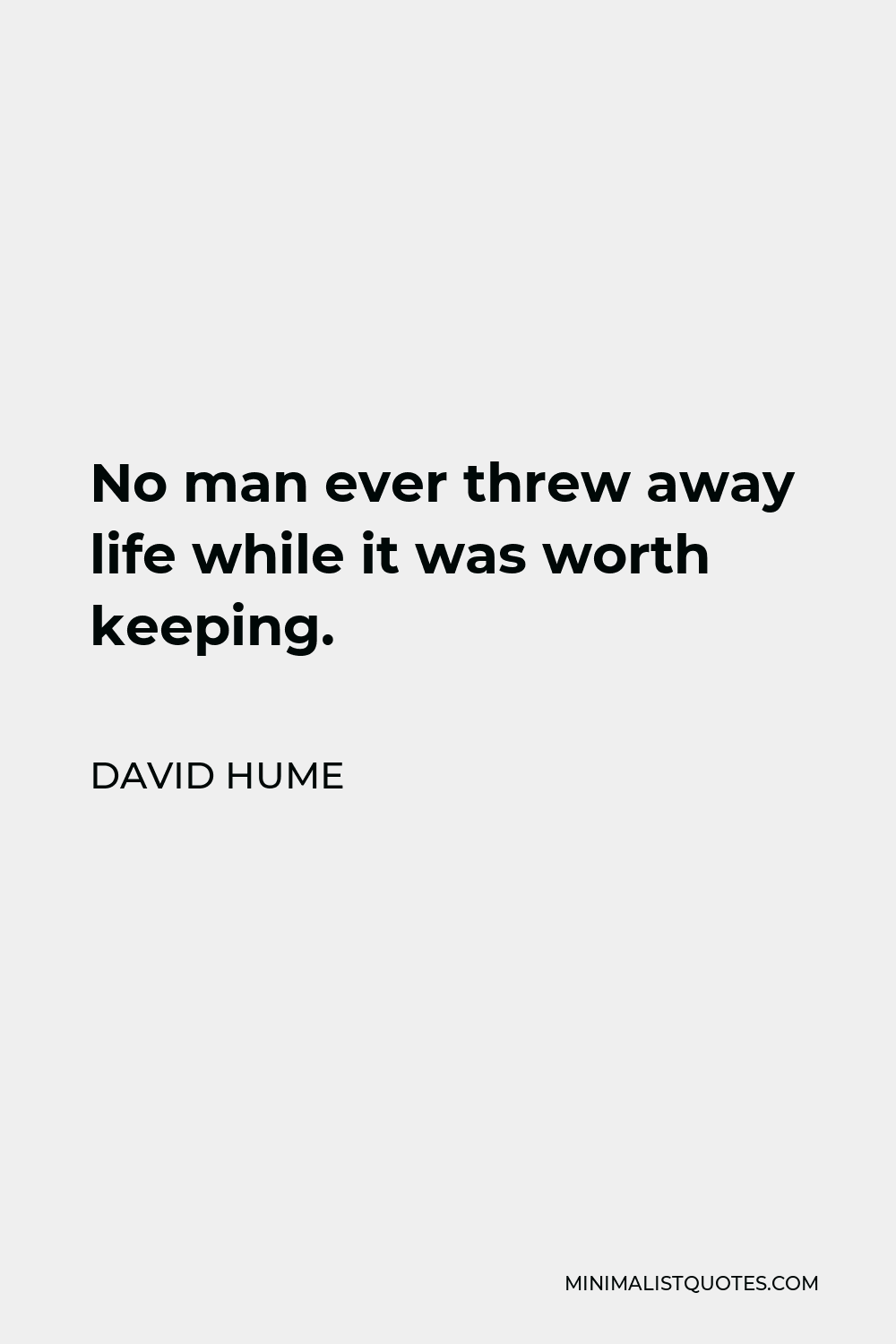It is difficult for a man to speak long of himself without vanity.
DAVID HUMENo man ever threw away life while it was worth keeping.
More David Hume Quotes
-





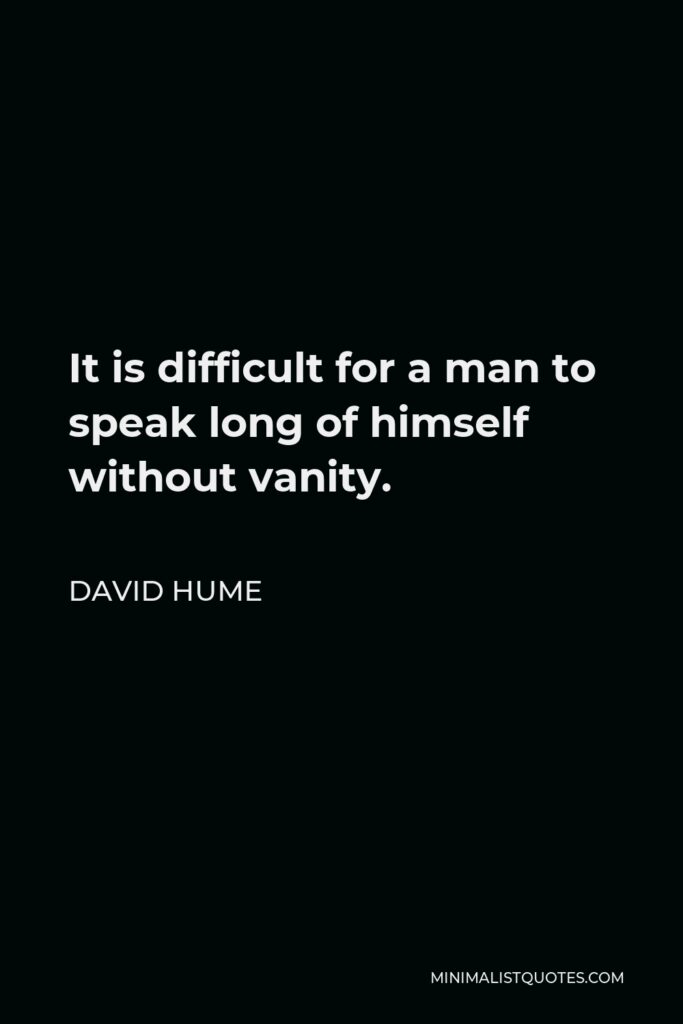

-





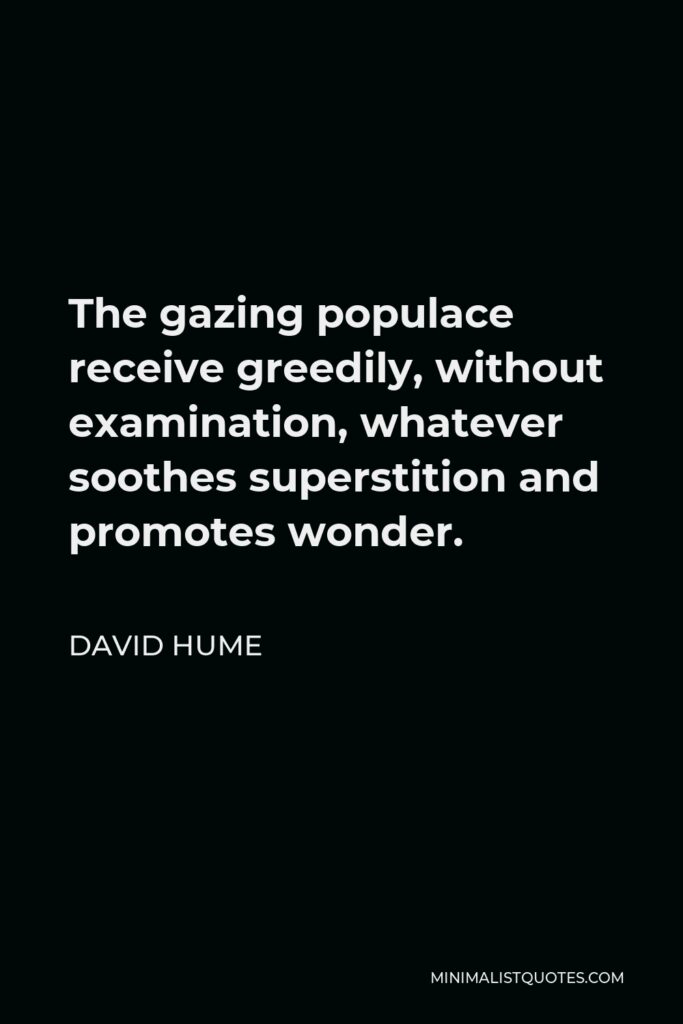

The gazing populace receive greedily, without examination, whatever soothes superstition and promotes wonder.
DAVID HUME -





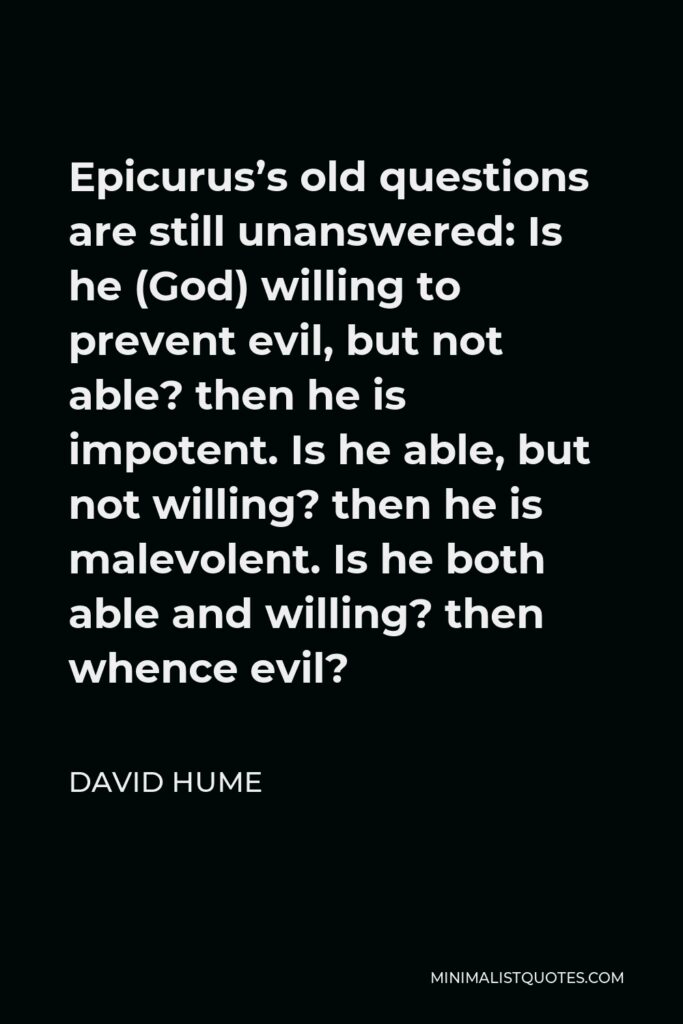

Epicurus’s old questions are still unanswered: Is he (God) willing to prevent evil, but not able? then he is impotent. Is he able, but not willing? then he is malevolent. Is he both able and willing? then whence evil?
DAVID HUME -





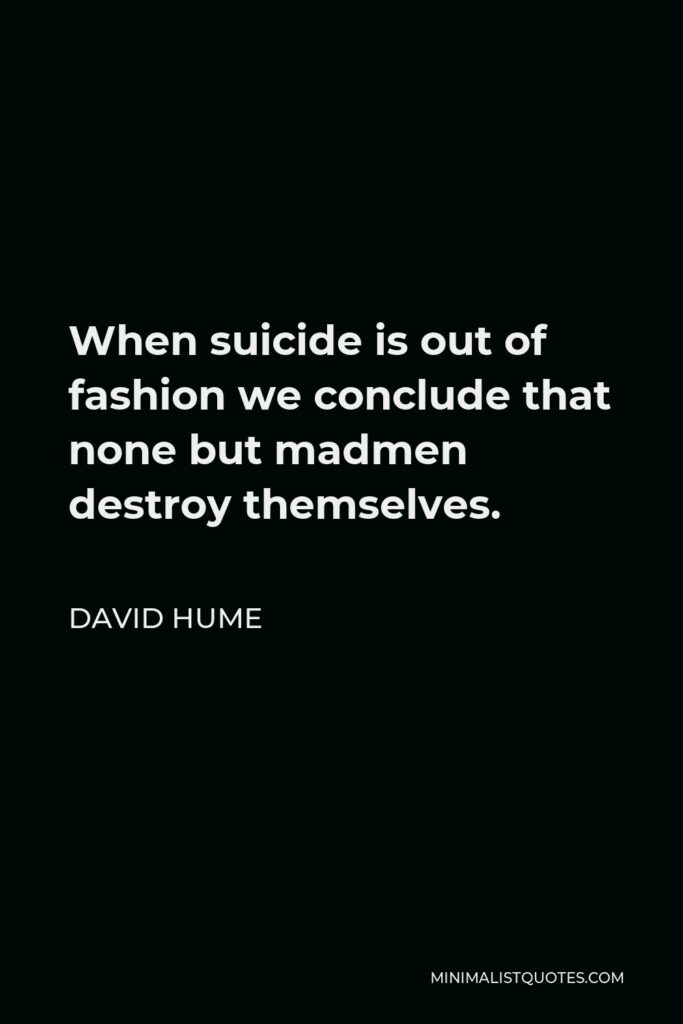

When suicide is out of fashion we conclude that none but madmen destroy themselves.
DAVID HUME -







When men are most sure and arrogant they are commonly most mistaken, giving views to passion without that proper deliberation which alone can secure them from the grossest absurdities.
DAVID HUME -





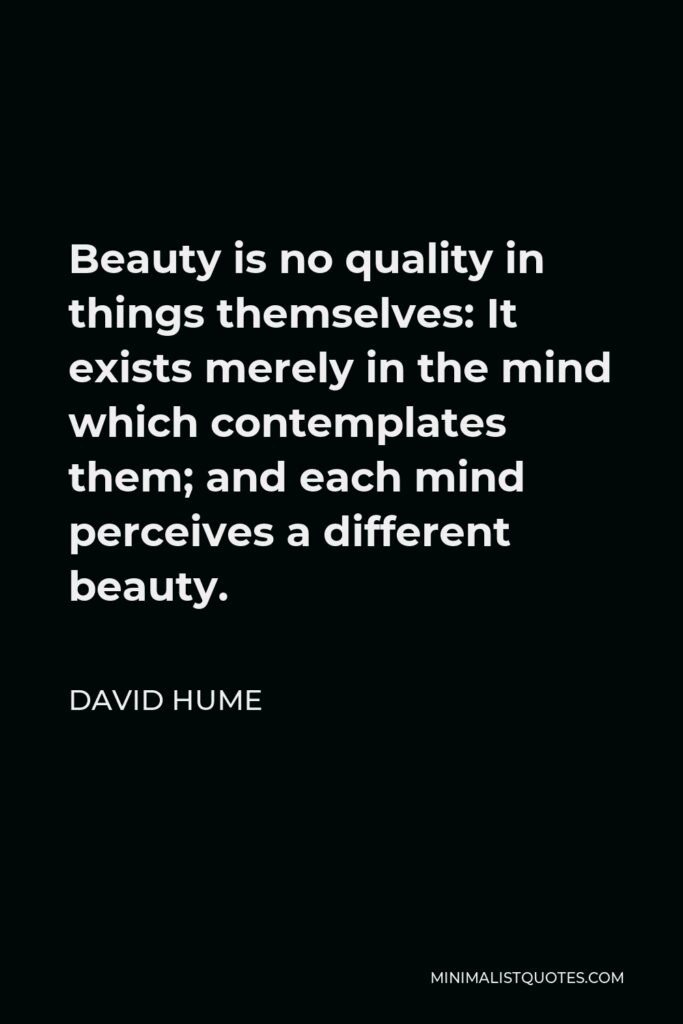

Beauty is no quality in things themselves: It exists merely in the mind which contemplates them; and each mind perceives a different beauty.
DAVID HUME -





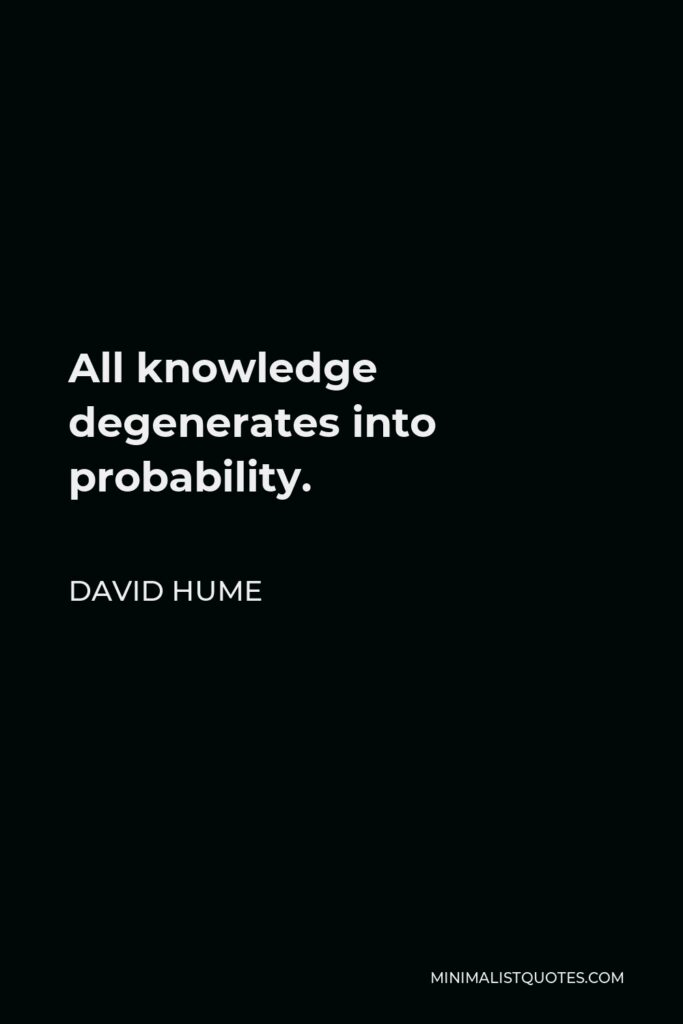

All knowledge degenerates into probability.
DAVID HUME -





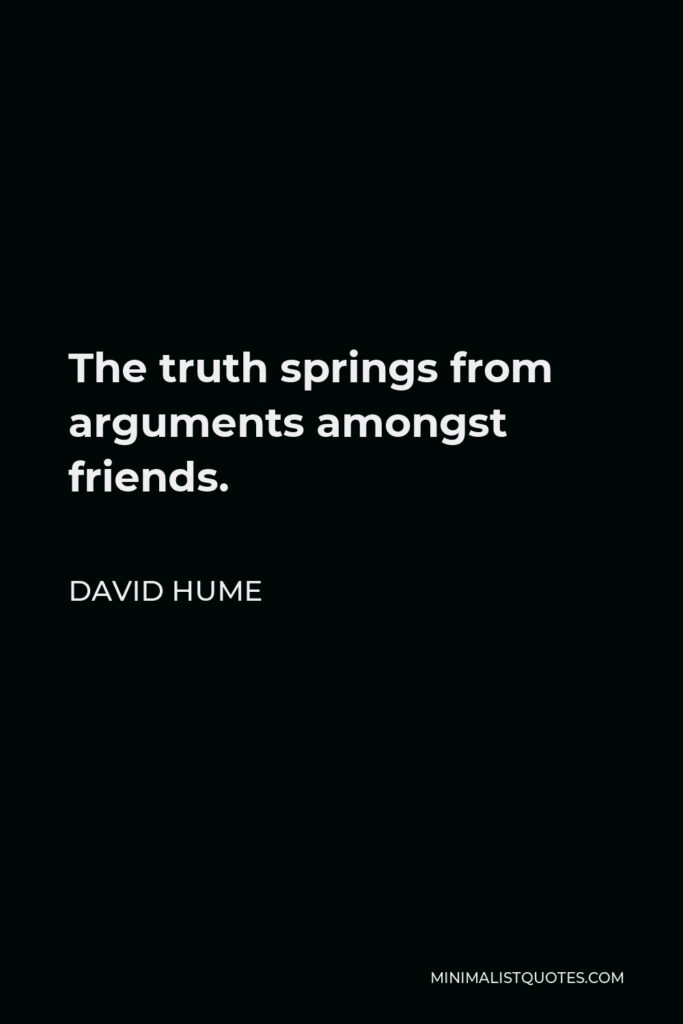

The truth springs from arguments amongst friends.
DAVID HUME -





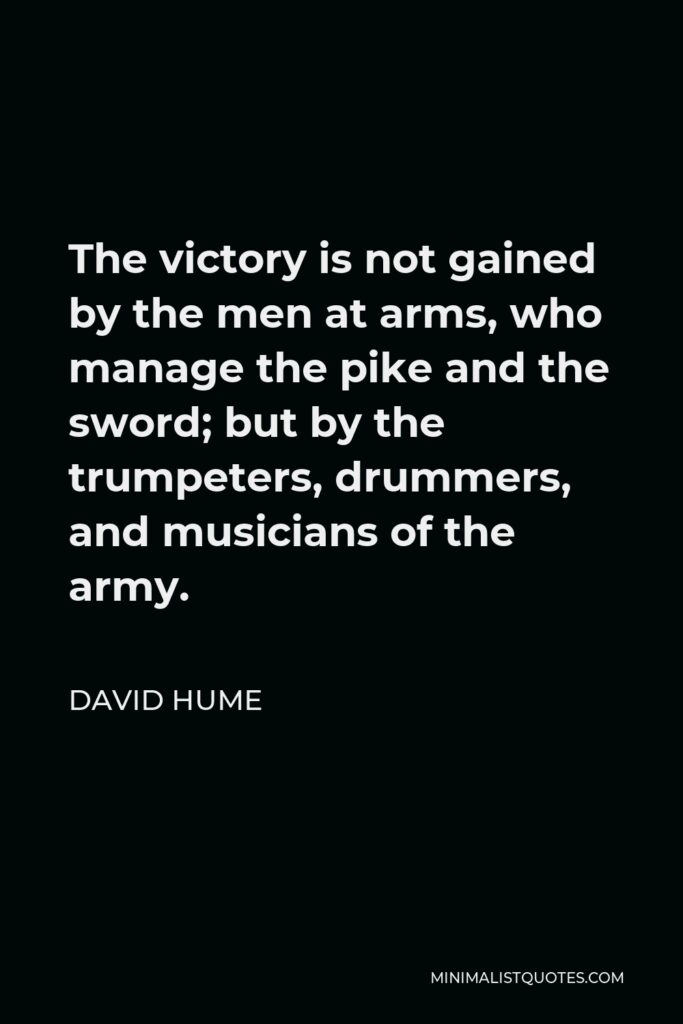

The victory is not gained by the men at arms, who manage the pike and the sword; but by the trumpeters, drummers, and musicians of the army.
DAVID HUME -





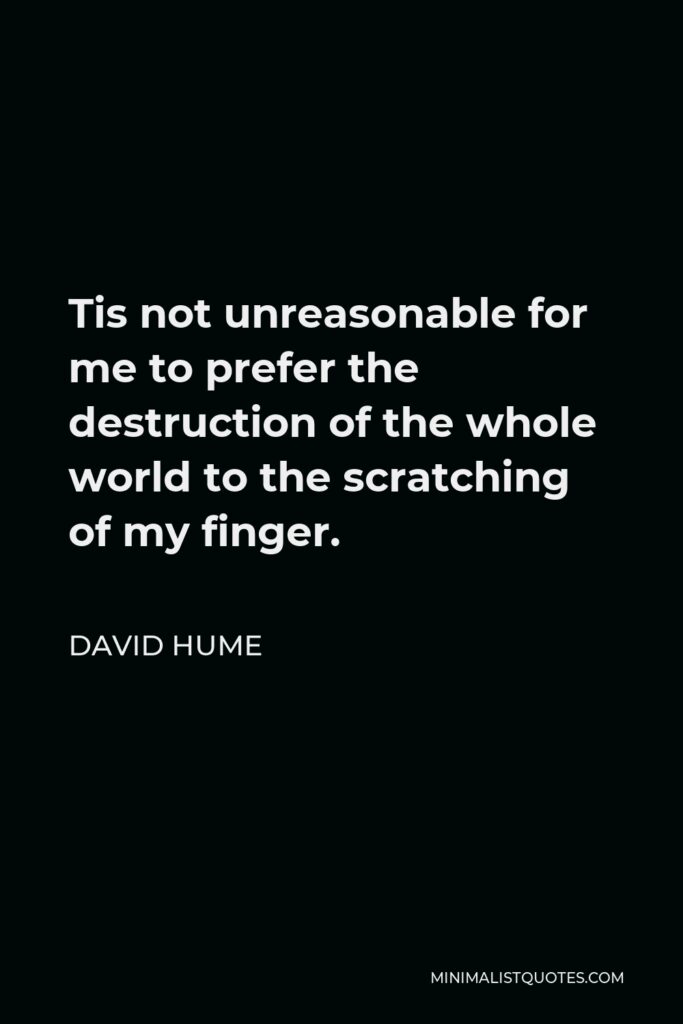

Tis not unreasonable for me to prefer the destruction of the whole world to the scratching of my finger.
DAVID HUME -





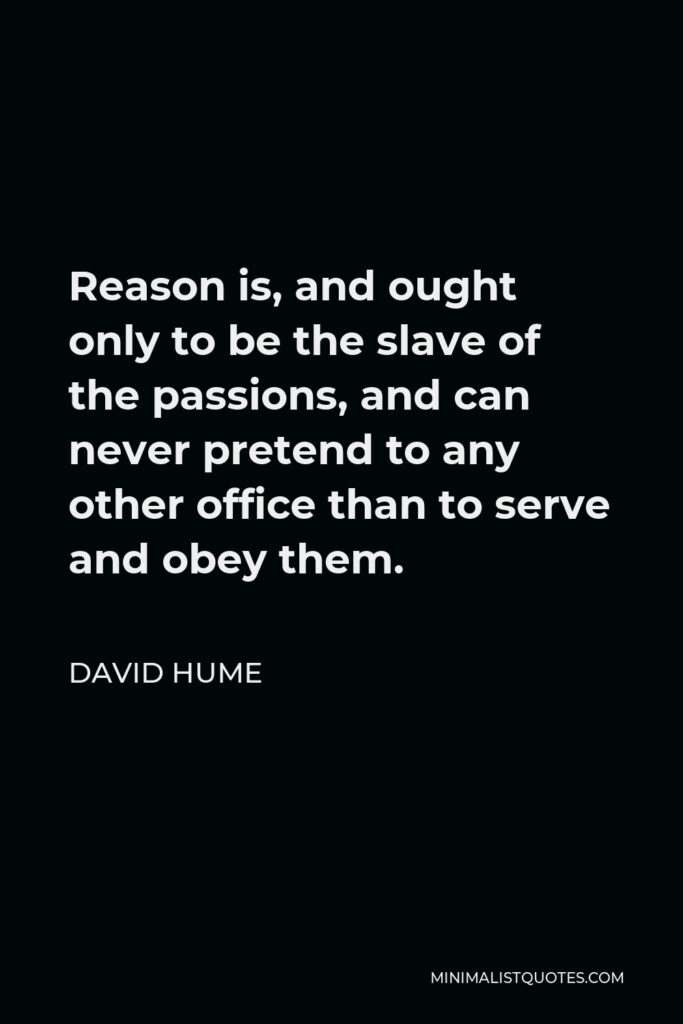

Reason is, and ought only to be the slave of the passions.
DAVID HUME -





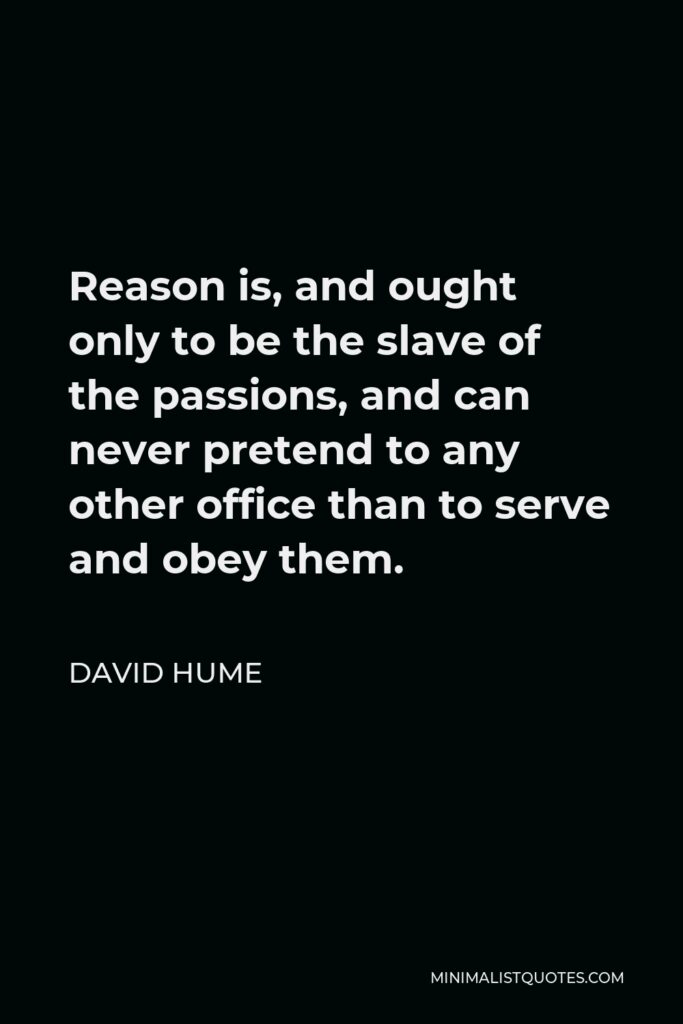

Reason is, and ought only to be the slave of the passions, and can never pretend to any other office than to serve and obey them.
DAVID HUME -





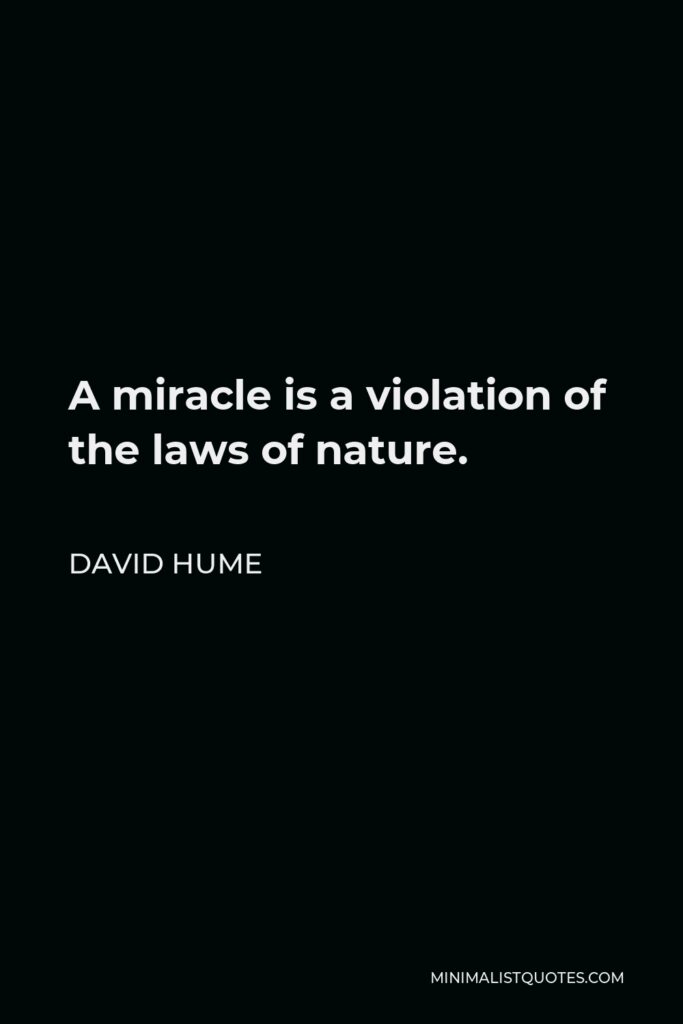

A miracle is a violation of the laws of nature.
DAVID HUME -





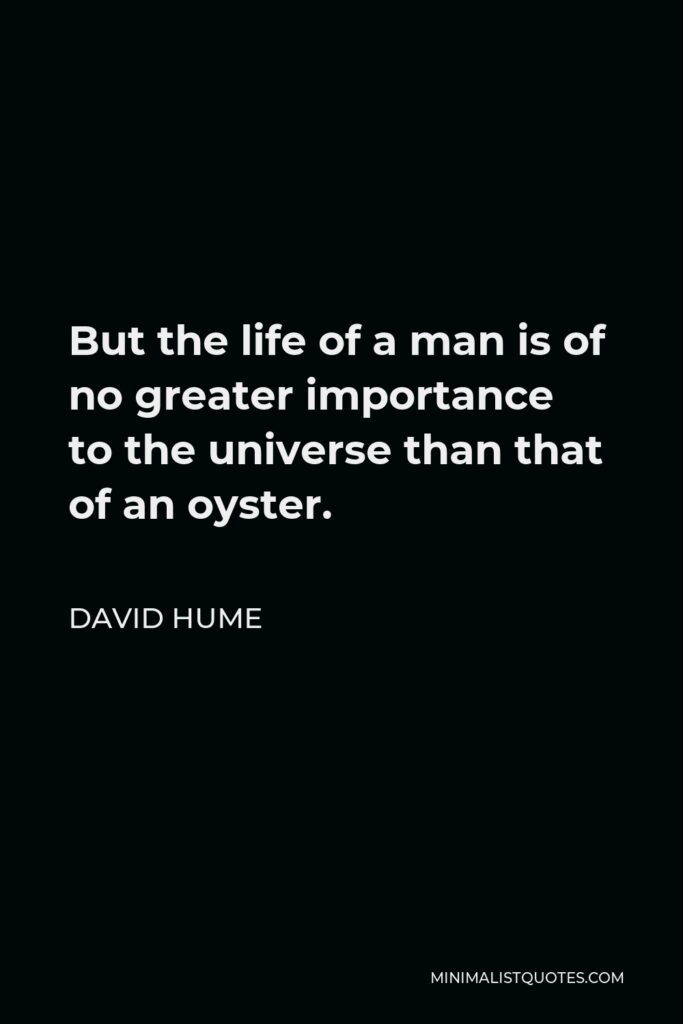

But the life of a man is of no greater importance to the universe than that of an oyster.
DAVID HUME -





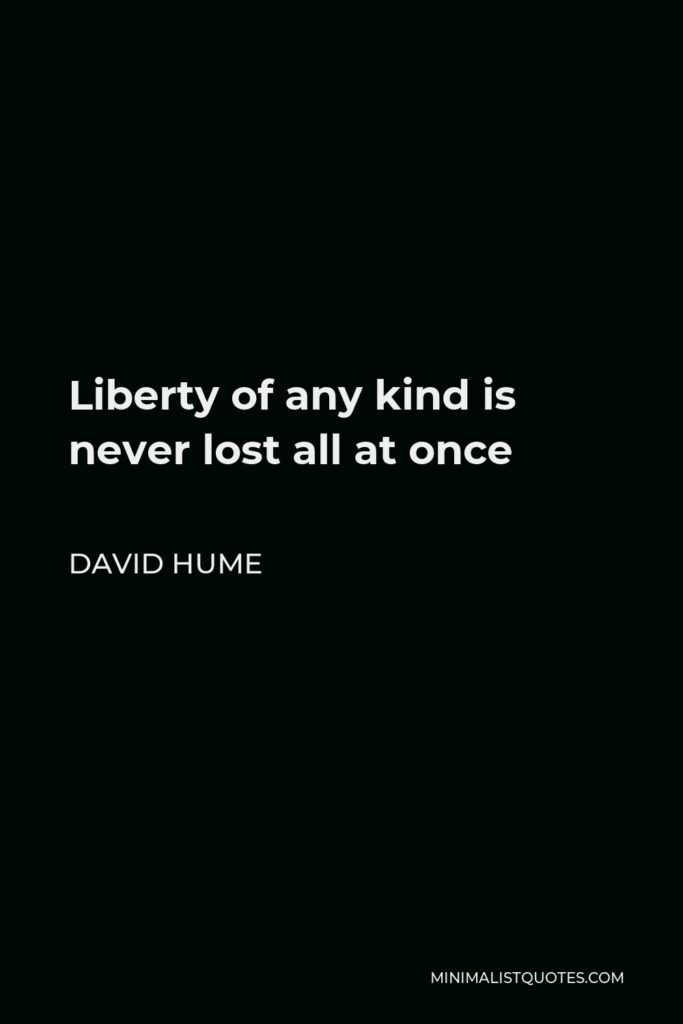

Liberty of any kind is never lost all at once
DAVID HUME -





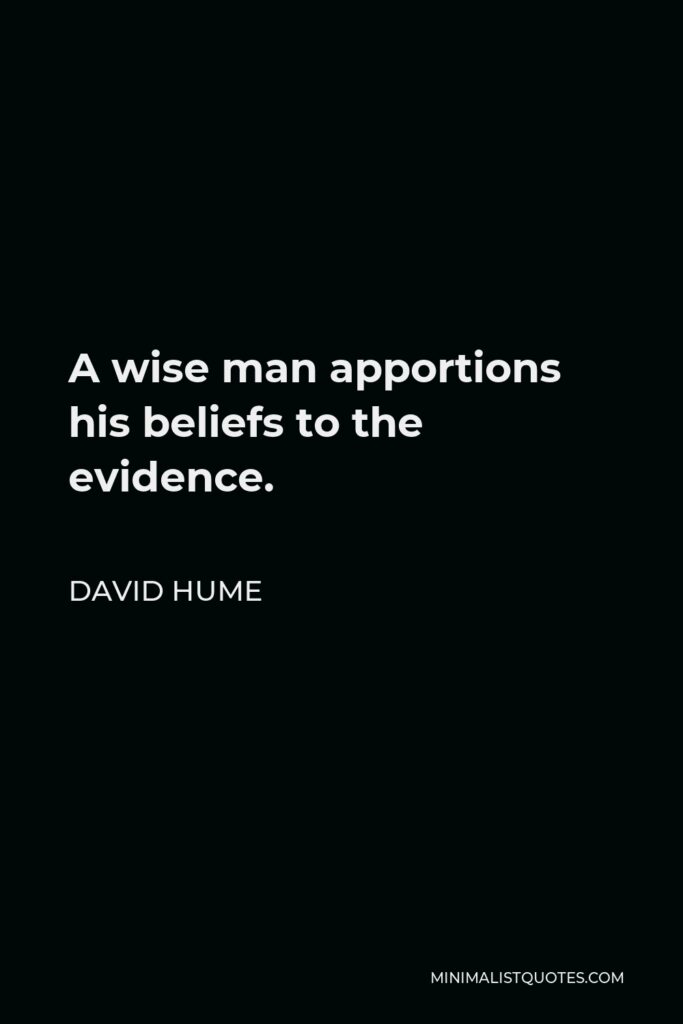

A wise man apportions his beliefs to the evidence.
DAVID HUME

